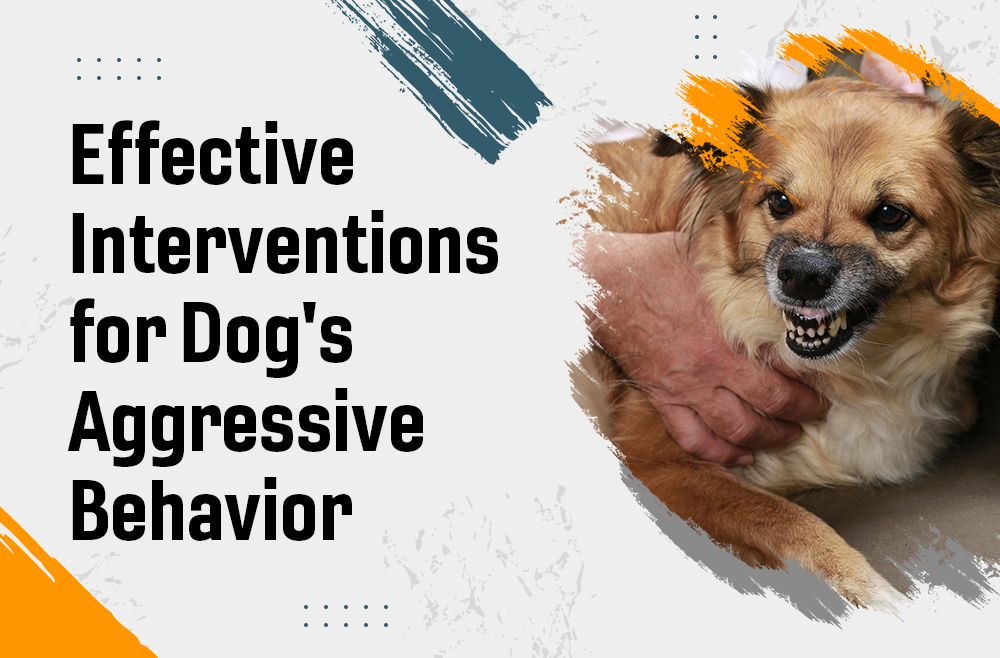Aggression in dogs is a common issue that can be caused by various factors such as fear, stress, lack of socialization, and even medical conditions. While it is a natural behavior for animals to protect themselves and their territory, excessive aggression in dogs can be problematic and dangerous. As a responsible pet owner, it is essential to address this aggressive behavior and find effective interventions to ensure the safety of your dog and those around them.
Here are some proven interventions that can help in managing a dog’s aggressive behavior:
Identify the Triggers
The first step in addressing aggression in dogs is identifying the triggers that cause their aggressive behavior. Some common triggers include fear, territoriality, and resource guarding. By knowing what triggers your dog’s aggression, you can take the necessary precautions and avoid those situations.
Positive Reinforcement Training
Positive reinforcement training is an effective method of training that uses rewards to encourage desirable behavior in dogs. This approach focuses on rewarding good behavior instead of punishing bad behavior.
Socialization
Socializing your dog at an early age can help prevent aggressive behavior later on. Exposing your dog to various environments, people, and animals can help them feel more comfortable and less threatened in different situations. This way, they are less likely to react aggressively when faced with new experiences.
Exercise and Mental Stimulation
Dogs that are not adequately exercised or mentally stimulated can become frustrated and display aggressive behavior. Regular exercise and providing mental stimulation through activities like puzzle games can help release pent-up energy, preventing dogs from acting out aggressively.
Calming Supplements
Some dogs may benefit from the use of calming supplements to manage their aggressive behavior. These supplements contain natural ingredients such as chamomile, valerian root, and passionflower which can help reduce anxiety and promote relaxation in dogs. However, it is essential to consult with a veterinarian before using any calming supplements for your dog.
Counterconditioning
Counterconditioning is a technique that involves replacing an undesirable behavior with a desirable one. For example, if your dog shows aggressive behavior towards other dogs, you can train them to associate the presence of another dog with something positive, such as treats or toys. This way, they learn to view the trigger in a more positive light and their aggression decreases.
Desensitization
Similar to counterconditioning, desensitization involves gradually exposing the dog to their triggers while keeping them calm and relaxed. For example, if your dog becomes aggressive when approached by strangers, you can start by having someone they know and trust approach them slowly. Over time, gradually increase the level of exposure until your dog can remain calm and friendly around unfamiliar people.
Consistency and Patience
Addressing a dog’s aggressive behavior takes time, patience, and consistency. It is crucial to be consistent in your training techniques and not give up too soon. With the right interventions, you can see significant improvements in your dog’s behavior over time.
Be a Responsible Pet Owner
Lastly, it is essential to remember that as a pet owner, you are responsible for your dog’s behavior and well-being. Please keep your dog’s vaccinations up to date, provide them with a safe and comfortable environment, and never use physical punishment as a means of training.
Contact Us
If you are struggling with managing your dog’s aggressive behavior, do not hesitate to contact us at Club K9. Our experienced trainers can provide personalized and effective interventions for your dog’s needs. With our training services, your dog can become happier, less anxious, and more respectful towards others. Book with us today to give your dog the best life possible.

